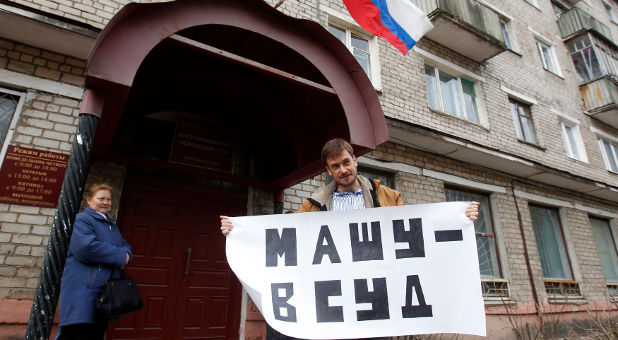Russia Moving to Jail People for Religious Offenses
Russian lawmakers on Tuesday took a step toward imposing jail terms for offending religious feelings, approving legislation proposed after punk band Pussy Riot performed a raucous protest song in Moscow’s main Orthodox Christian cathedral.
Critics say the bill will give government-approved religious groups protection others lack and blur the line between church and state under President Vladimir Putin, who has advocated a strong societal role for the Russian Orthodox Church.
Lawmakers in the State Duma approved the bill by a vote of 304-4 after the second of three required readings in the 450-seat lower parliament house.
Approval in the second reading, which is when most changes are made to legislation, means Putin is likely to sign it after it gets through the Duma and a vote in the upper house.
The bill would introduce jail terms of up to one year and fines of up to 300,000 roubles ($9,600) for “public actions expressing clear disrespect for society and committed with intent to offend the religious feelings of the faithful.”
If committed in a house of worship the maximum punishment would be three years in prison and a fine of 500,000 roubles.
Kremlin critics fear that despite changes in the second reading that made the wording more specific, it will allow for selective application and use of the law as part of a growing Kremlin arsenal of tools to suppress dissent.
“This is another repressive law,” veteran human rights activist Lyudmila Alexeyeva told the Interfax news agency.
Putin has not spoken publicly of the bill, but he has suggested the jailing of Pussy Riot members was justified—despite Western criticism—because the state needed to protect the faithful.
Three members of Pussy Riot were sentenced to years in prison last August for the February 2012 protest in which they burst into Christ the Saviour Cathedral and belted out a “punk prayer” urging the Virgin Mary to rid Russia of Putin.
They were convicted of hooliganism motivated by religious hatred, while the bill imposing jail terms for offences against religious feelings may be used to prosecute for less overt actions.
One of the three, Yekaterina Samutsevich, was freed when a judge suspended her sentence on appeal. Maria Alyokhina has a parole hearing on Wednesday, and Nadezhda Tolokonnikova was denied parole last month.
Writing by Steve Gutterman; Editing by Michael Roddy
© 2013 Thomson Reuters. All rights reserved.














































